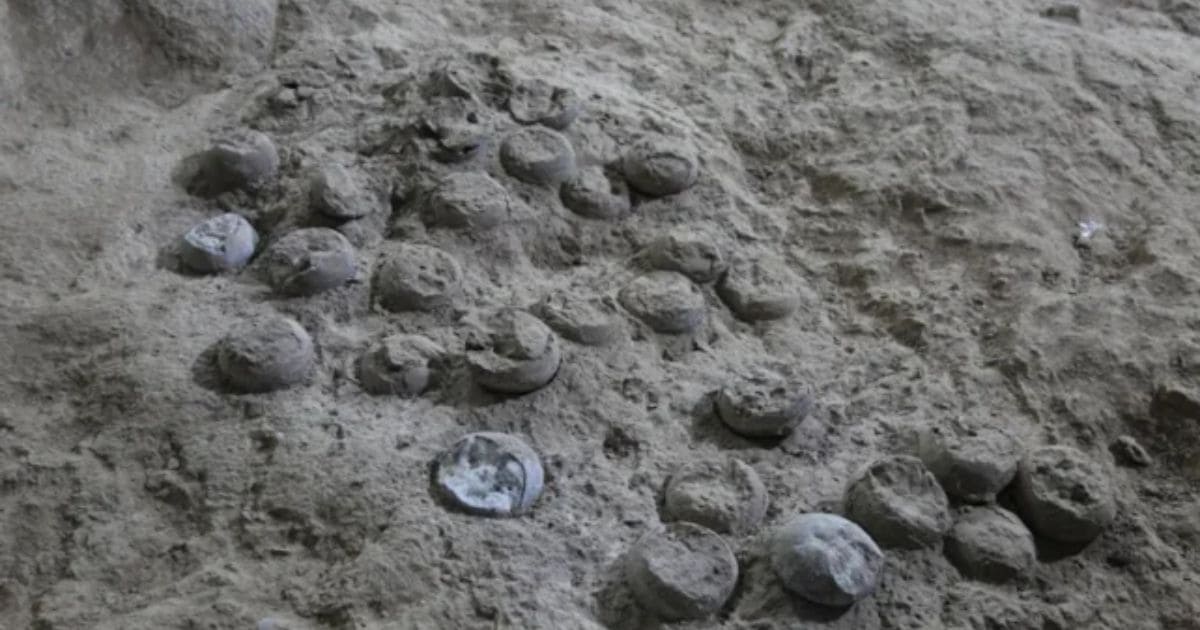China. Chinese researchers have, for the first time, directly dated dinosaur eggs by blasting them with lasers—pinpointing their age at about 85 million years.
Using a micro-laser, scientists vaporized eggshell fragments to release uranium, which naturally decays into lead. Measuring that ratio through U-Pb dating gave a precise timeline, unlike older methods that relied on surrounding volcanic rocks and introduced uncertainty.
The eggs were unearthed in Qinglongshan, central China, a fossil-rich site boasting more than 3,000 preserved eggs. Most are linked to the enigmatic Placoolithus tumiaolingensis, though the exact species studied remains unknown.
Researchers say the technique offers critical insights into the Upper Cretaceous period, a time of intense climate shifts that may have shaped dinosaur reproduction and survival.
“This achievement has significant implications for understanding dinosaur evolution, extinction, and environmental changes during the Late Cretaceous,” said Bi Zhao of the Hubei Institute of Geosciences.
The findings appear in Frontiers in Earth Science.

Comments